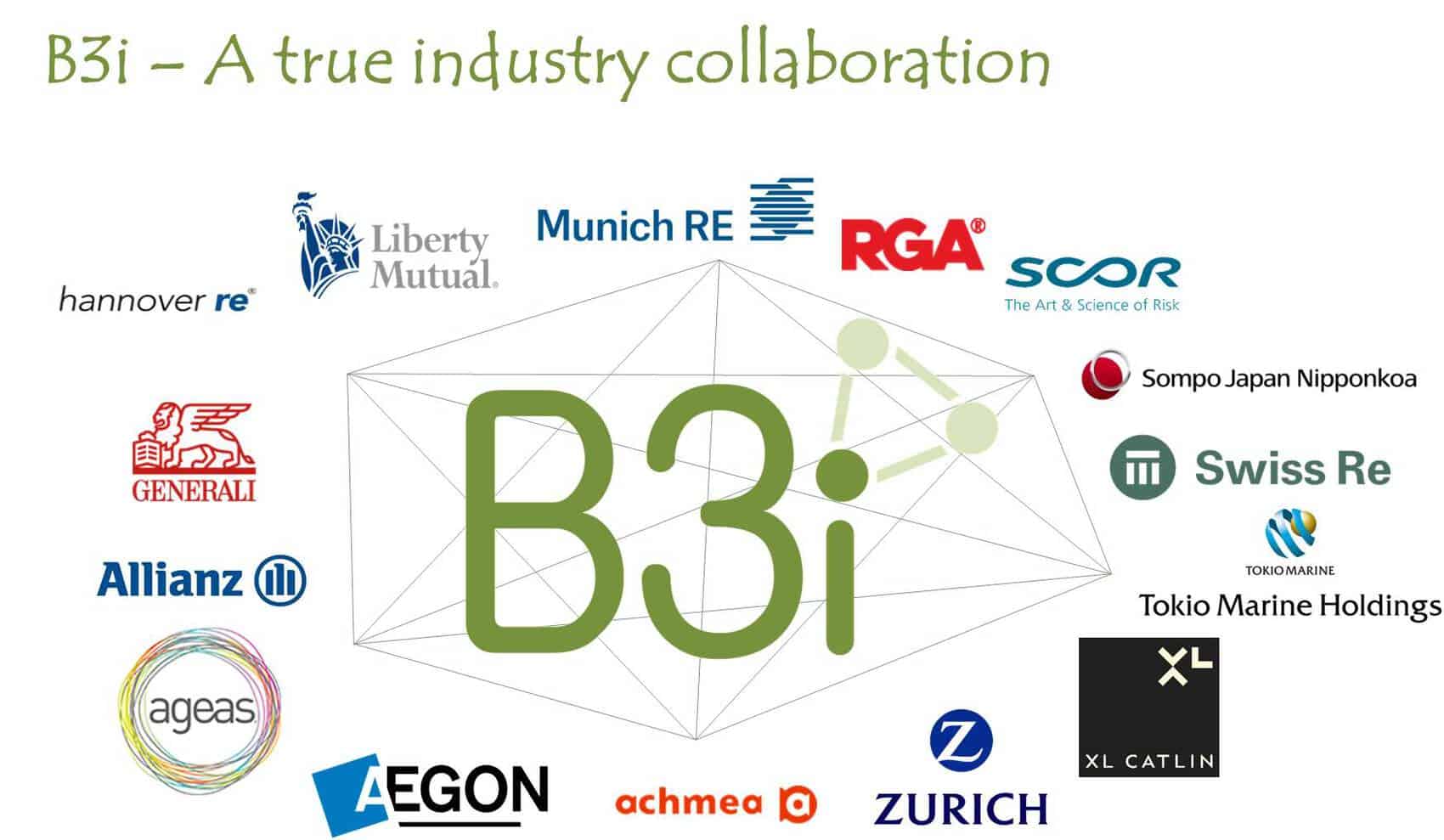
Everyone wants to feel sure. One way to make sure any potential and/or preventable risk can be reduced is insurance. It can play an important role in helping you manage your financial risk if something goes wrong or behaves in an unpredictable way. Another way to feel safe is to use smart contracts on the blockchain, which provide transparency, autonomy, accuracy, and other important advantages.
Both ways are good, and give you some benefits, as well. But can we combine them to get more benefits for your business and for yourself? Is there a way to get more efficiency? Yes, there is such a way, and we can already feel its advantages. This way is using smart contracts in insurance. Nowadays, they are one of the smartest instruments for managing your risks and letting you feel sure about your future. Are you curious about how it works? Let’s go deeper, and find out more about the insurance industry, smart contracts, blockchain technology, and using smart contracts in insurance.
The Insurance Industry in the Global Economy
The development of the insurance industry is deeply connected with the development of the world economy. Insurance companies are among the largest collective investors in the global economy. They occupy an active investment position. This kind of activity depends directly upon the dynamics of the insurance market as a whole. As trade and production take on an international character, there is a growing need for global insurance protection, which activates the process of globalization within the insurance market. The growth of direct investment also indicates an intensification of business processes, which opens up new horizons for the development of world insurance.

The current leaders in insurance services are transnational insurance companies and groups. From their point of view, the world insurance market is on the verge of creating a homogeneous insurance market.
These transnational insurance companies act as an engine of integration. Their interests are focused on expanding the geographical scope of activities, reaching regional markets by eliminating barriers to entry, cutting costs, and enhancing competitiveness as a result.
Insurance for Business Protection
The insurance industry has a huge influence on both the global economy and business security. A business owner risks his or her own capital, so one of his main tasks is to minimize risks. Under these circumstances, it makes sense to manage risk and reduce it. That’s why it is important to have the right insurance in place. Fortunately, there are a lot of insurance types to protect businesses against various dangers. A business owner can buy an insurance policy to protect his or her business from interruption, and to insure product liability, property, workers’ compensation, professional liability, and home-based businesses.
Additionally, the law demands that businesses with employees have some type of insurance. This depends upon the state where the business is located. Different policies can protect varying types of business against unexpected dangers. Replacement costs for individual business are much higher, and this makes purchasing business insurance a wise decision for many business owners, whether it is a large or small business.

We can see that insurance is vitally important for business.
Insurance policies protect businesses from unexpected circumstances and unforeseen dangers. For this, traditional contracts do a great job. But now we have the chance to improve our insurance experience, and to make it much more clear and transparent by using smart contracts. This combines the experience of the insurance industry with all the benefits smart contracts have to offer. We have every reason to believe that this is a big new step for mankind.
What Is a Smart Contract?
To consider the advantages of smart contracts in insurance, let’s find out more about smart contracts on the blockchain.
Today, we are witnessing the development and implementation of completely new technologies that can change the world, as the Internet did in its time. One of these technologies is blockchain technology.

Figuratively speaking, if the Internet has reduced distances between people, blockchain technology aims to minimize mistrust between people. This is of great importance, because the very existence of notaries, registers, banks, guarantors, and the many other institutions of modern civilized society is based upon the lack of trust between people.
Though blockchain is usually associated with Bitcoin, there are many other ways to use the technology. In fact, Bitcoin is only one of the applications currently using blockchain technology today.
Blockchain is a type of a distributed database that stores records of digital transactions. Instead of having a central administrator like traditional databases (banks, government, and accounting), it has a network of replicable databases. This network is synchronized over the Internet, and is visible to all users on the network.
When a digital transaction is carried out in the blockchain system, it is grouped in a cryptographically-protected block with other transactions that have occurred in the last few minutes, and is distributed throughout the network.
The confirmed transaction block is then dated and attached to the chain in linear, chronological order. New blocks of trusted transactions are associated with older blocks. They form a chain of blocks that show each transaction achieved in the history of this blockchain. This also brings unprecedented security benefits. For example, if someone wanted to break a particular block in the blockchain, the hacker would not only have to break this particular block, but also all of the output blocks in the history of this blockchain—and there could be millions of them.
We can see that blockchain is decentralized, open, cryptographic technology that allows people to trust each other, making intermediaries obsolete.
Undoubtedly, this technology will not be able to completely rid the world of intermediaries, but it is already clear that it will significantly simplify economic turnover. As a result, modern business models will become more efficient, and transaction costs will be significantly reduced.

Thanks to the existence of blockchain technology, ideas and concepts that were difficult to realize in the past are being developed now. Among them are the Internet of Things, the economy of joint consumption (shareconomy), and smart contracts.
A smart contract is not a contract in the traditional manner we used to know. To make a comparison, let’s imagine how many attempts it would take to seal a contract between two parties in the real world. On the one hand, it would be necessary to use the services of a legal representative. This person must draw up a contract. Then the two parties would have to agree with its terms. On the other hand, the government would have to provide the currency for the transaction.
Additionally, the government must provide a legal basis, and intervene in case of a dispute. If the parties want access to their finances, it would be necessary to involve a number of financial institutions in this process. We can see how many middleman would be involved. In the case of conflict, the situation would be even more complicated, and even then, these intermediaries could not guarantee that the result would be successful.
Smart contracts make this process much easier and safer all parties involved, ensuring the transparency of the relationship and guaranteeing payment. The concept of smart contracts was described for the first time by Nick Szabo in 1996. Nick Szabo is a computer scientist and cryptographer who works at the junction of economics, law, and computer science. He described a smart contract as “a set of promises, specified in digital form, including protocols within which the parties perform on these promises.” The idea was to allow computers to regulate the ownership, management, and operation of the property to which the computer can have direct access. The rules of regulation itself were proposed to be written in a language understandable to machines—a programming language. Less than twenty years have passed, and the concepts of Nick Szabo are becoming a reality.
A smart contract is a computer algorithm. Its goal is to conclude and support the phased implementation of commercial contracts in blockchain technology—in this case, the action algorithm reflected in the blockchain. The terms of such a contract can only be interpreted by the system unambiguously, as they are implemented by the system.
The Benefits of Using Smart Contracts
What are the benefits of using smart contracts? There are a lot of them, but the main benefits are:
- Independence
Blockсhain is a completely independent technology that does not require any brokerage operations. It is important that for the conclusion of an agreement, there is no need for a third party in the person of intermediaries or lawyers. Consequently, the potential risk of manipulation by third parties is reduced to zero, since contract management is automated through the network. In this case, the human factor is excluded, and the fulfillment of the contract no longer depends upon subjective moments. - High speed
Unlike the manual processing of documents, smart contracts provide automation of such tasks through program code. This saves a huge amount of time that would otherwise be spent on endless manual processing of information. - Transparency
It is impossible to lose documents, because they are stored in encrypted form on a common account accessible to all parties to the contract. - Saving Backups
Blockchain solves this problem. The contract will have duplicates, in case your accounts are lost due to the fault of the other party. - Security
Smart contracts provide an unrivaled level of security through the use of encrypted websites. This is the essence of cryptography. Your documents are securely protected, because in order to understand your code, hackers would require exceptional abilities. Therefore, your documents will be safe. - Economy
Due to the absence of intermediaries, smart contracts can save a lot of money, because you do not need to hire a lawyer to control the execution of your transactions. - Accuracy
Internal automation of the smart contract helps to reduce the number of errors. It also helps to ensure low cost and high speed in comparison with manually filling out a multitude of forms.
It is clear from these observations that smart contracts hold unique advantages that can resolve a great many problems in different fields. We can use smart contracts in different areas and numerous industries, because they provide transparency, independence, high speed, economy, accuracy, security, and other benefits. It is very important for the insurance industry to have these benefits, and to use them. There is no doubt that they can optimize the insurance industry. Let’s see how that works.
Blockchain Smart Contracts in the Insurance Industry
It is a fact that blockchain will become commonplace in the insurance industry. Using blockchain smart contracts could give it a new level of development. The reason for this is that blockchain can make the insurance industry more efficient and solve certain problems inherent to this industry. In spite of all the money involved in insurance, these problems still cause pain.
Among them there are fraud, customer interaction, manual claim review, workforce, distribution channel, inefficient data sharing, and fragmented data sources. All of them are of great importance, but fraud is the most important of all. It affects every type of insurance, and the outcome is unfair costs for the honest policyholder. So, what can the insurance industry do to combat fraud and other problems? One of the best ways to them is to use blockchain smart contracts in insurance.

Blockchain technology has the ability to improve existing processes, so it could have an equally transformative impact on the insurance market. Insurance-industry investments in blockchain-type technologies focus upon this ability.
How Using Smart Contracts Improves the Insurance Industry
According to professional services giant Deloitte, the insurance sector will see the most significant change from the adoption of blockchain technology. The benefits of using smart contracts in insurance are clear.
Today, even non-contested claims payments can take weeks or months to be paid. As a result of using smart contracts and automated claims payment processes, policyholders will get paid more quickly in comparison with today’s manual processes. Also, smart contracts will reduce claims administration costs and the risk of fraudulent claims.
Using blockchain smart contracts in insurance can:
- reduce fraud through transparency
- help to protect policy documents
- develop a system in which some claims can be verified and handled very quickly
- reduce paperwork
- place the storage of policy documents on numerous ledgers, so it will be impossible to lose them
- improve the quality of data used during underwriting
- remove administrative barriers
- improve the claims process by developing a system for quickly verifying claims
- generally improve efficiency of the insurance industry
Smart contracts have the potential to play a helpful role in the insurance industry. Blockchain does not create a new market; it changes the existing one.
Examples of Using Blockchain Smart Contracts in Insurance
The Blockchain Insurance Industry Initiative (B3i) is a collaboration of the insurance giants Allianz, Aegon, Zurich, Munich RE, RGA, and others. They developed a partnership of insurers and reinsurers. The aim is to explore the opportunities presented by distributed ledger technologies in the insurance industry. This organization was established in 2016, and now has 15 participants. The Blockchain Insurance Industry Initiative makes insurance risks more tradeable.

SSafeShare, in partnership with Vrumi, has created a new product to protect property owners from losses related to damage and theft caused by commercial tenants. This great insurance solution, offered by SafeShare over blockchain, provides their customers a 24-hour claims hotline and coverage processed in real time.
Using blockchain technology will help insurance companies keep their costs low. Another benefit for the insurer is the opportunity to provide a new market of needs-based insurance solutions. SafeShare is a fantastic blockchain-based insurance solution for startups.
In Ukraine, Vladimir Shevchenko, Director of the Motor Transport Insurance Bureau of Ukraine, plans to implement blockchain technology in some business processes of the bureau.
Vladimir Shevchenko declared that globally, the use of blockchain would largely solve the problem of lack of trust. The reason is that contracts on blockchain are safe, clear, and transparent. After signing a contract, there is no way to make changes to it, or to say that there’s no such contract.
When data is put into blockchain, it is assigned a time and date field. The technical features of the distributed registries prevent it from changing. When the time comes for editing information, a new date and time is assigned, and the cryptographic parameters of the record are changed. Blockchain is thereby considered an independent witness of the conclusion of the contract that cannot be bribed.
In addition, there is an expectation that even the first steps of the use of blockchain technologies will provide a powerful impetus to the integration of various databases that can be used in motor insurance, Vladimir Shevchenko said.
The Rega Risk platform uses the Ethereum blockchain system to create decentralized autonomous organizations that operate as mutual insurance clubs without intermediaries in the form of insurance companies. The company ReGa Risk Sharing has created a service of mutual insurance for domestic animals called Lexi Club. It refunds about 80% of the amount spent on veterinary services.

Before the concluding the smart contract, the owner sends a bot a photo of his or her pet. After that, the animal is assigned to a certain risk group. Then the owner receives an offer, and can conclude the contract. Every member of the club receives a virtual Lexi Card. It identifies the smart contract that manages the account of the club member in the Ethereum blockchain.
If the pet visits the veterinarian, the service analyzes the user’s check, compares it with the information of the vet clinic, and returns part of the funds from the general fund to the pet owner. The service will be monetized at the expense of a commission from membership fees at approximately 20%. In addition to insurance, the bot will allow the finding of a pet in case of loss, using neural network analysis of photos in social networks.
In the near future, the blockchain insurance services Rega Gadget Protection (insurance for gadgets) and Drone Insurance (insurance for drones) will be launched.
A new flight delay insurance product has been launched by the French insurance giant AXA. The product is called Fizzy. It uses the public Ethereum blockchain to store and process payouts.
If a flight is delayed by two hours or more, flyers can use the “smart insurance” tool Fizzy to insure their trips. Using smart contracts, which are self-executing pieces of code that trigger once certain conditions have been met on a blockchain, makes this insurance tool efficient and useful.

According to AXA, Fizzy offers direct, automatic compensation to policyholders whose flights are delayed. If the plane is more than two hours late, Fizzy will reimburse the policyholder immediately.
We can see that the Ethereum public blockchain plays two key roles here. On the one hand, it serves as a mechanism for triggering payment to the client once the two-hour mark has passed. On the other, it maintains an accessible record of the insurance contract itself within a smart contract. Ultimately, this product is a way to build more transparency into the insurance process for AXA, and for the insurance industry in general.
Allianz, from Germany with the investment partner Nephelia, show us another example of using blockchain smart contracts in the insurance industry to handle catastrophe swaps and bonds. An insurer uses catastrophe swaps and bonds as tradable financial instruments to protect against major catastrophic losses. These are based upon triggering events like hurricanes or typhoons. Payout can be initiated between investor and insurer. Today, it may take weeks or even months to settle payment transactions like these after a catastrophic event has happened. Using blockchain smart contracts, the insurer can get the payment in hours after the catastrophic event. “Blockchain technology would increase reliability, auditability, and speed for both cat swaps and bonds as less manual processing, authentication, and verification through intermediaries is required to confirm the legitimacy of payments/transactions to and from the investors,” explains Richard Boyd, Bermuda-based Chief Underwriting Officer of Allianz Risk Transfer AG (ART).
Everledger is a global digital ledger that tracks and protects diamonds, fine art, and other valuable items. Everledger insures buyers of diamonds against fraud.

Each stone is assigned a digital serial number. There are already more than 300,000 diamonds in the register. With blockchain technology, nobody can change the information in the register. To assert transparency, Everledger builds on both the public blockchain and private blockchains, and thus reaches a hybrid technical model. In this case, it has value for consumers, insurers, and intermediaries alike.
“If insurance, then blockchain,” says Dynamis. Dynamis is an insurance company built on the Ethereum decentralized blockchain platform. Dynamis insures customers against unemployment. According to the CEO and founder of Dynamis, Joshua Davis, Dynamis is a smart contract for peer-to-peer insurance that provides supplementary unemployment coverage. This platform uses keybase.io to establish the customer’s identity by using profiles of the customer in social media. Applicants for a new policy can use LinkedIn for verifying their identity and employment status. Claimants can use their LinkedIn connections for validating that they are looking for a job. Participants can obtain a new policy or open a new claim by exercising their social capital within their social networks.
Requests for the conclusion of an insurance contract and decisions on insurance payments are accepted by the remaining participants of the insurance collective.
The Spanish online reputation startup Traity, in partnership with the largest Australian insurance conglomerate Suncorp, have launched a chatbot called Kevin. Kevin provides micro-insurance for peer-to-peer transactions using blockchain technology.

When somebody want to buy or sell something, he sends a message to Kevin and tells him about this peer-to-peer transaction. Kevin sends this user a unique link. After that, the user sends this link to his counterpart. Once that person gets approved, this peer-to-peer transaction is insured for up to U.S. $100. It is important to say that all this happens absolutely for free. According to Traity, this system means that anyone, at anytime, can verify and audit Kevin’s balance sheet. That makes the startup as “trustworthy” as any big bank or insurance company.
Blockchain technology also has a big impact on marine insurance. In the opinion of market participants, modern systems providing cargo insurance on sea transport are extremely overloaded and not effective enough. Existing difficulties in marine insurance can be greatly simplified by using joint efforts and modern technologies.
The Danish shipping giant Maersk, the audit company EY, Microsoft, and the blockchain cybersecurity company GuardTime combined efforts to work on a blockchain project for shipping insurance.

The service was built using Microsoft’s cloud platform Azure. It will create a common database that registers information on shipments and potential risks, the use of which will help the courts comply with the rules of insurance.
Blockchain technology is designed to ensure the transparency and reliable storage of all input information, which is a complex network of variables. Lars Henneberg, a representative of Maersk, said that there are some problems in marine insurance because of the complexity and duration of operations. Blockchain technology stimulates the development of marine insurance and helps to solve these problems.
There is no doubt that with the introduction of blockchain technology, transport companies will be able to provide standardization, cost reduction, automation, and efficiency in the marine insurance industry. According to representatives of joint companies, the introduction of blockchain technology can contribute to a radical change in the entire structure of the marine insurance industry. Another good thing about blockchain technology is that it can expand opportunities for effective interaction with world transport companies.
According to Bill Pieroni, the decision to implement blockchain technology is truly unique, given the depth and breadth of the anticipated opportunities, and it is liable to have a significant impact on a wide range of insurance products and services.
Smart Contracts Make the World Better
From these arguments, we could conclude that insurance is very important for the safety of a person and the security of a business. But now the insurance industry needs a big change. Problems in the insurance industry such as fraud, customer interaction, manual claim review, workforce, distribution channels, and inefficient data-sharing make less efficient than it could be.
The way to resolve this situation is to use blockchain smart contracts in insurance. It will help to remove administrative barriers, reduce fraud, improve the quality of data used during underwriting, protect policy documents, reduce paperwork, and improve the claims process by developing a system for quick verification of claims. There is no doubt that using blockchain smart contracts in insurance could generally improve the efficiency of the insurance industry.
Experts are convinced that smart contracts have the potential to play a helpful role in the insurance industry. From these facts, one may conclude that blockchain is changing the existing market of insurance services, giving it more transparency and autonomy.
There are a lot of companies that have already used blockchain smart contracts in insurance. Among them there are both large giants and small startups. They are united by the desire to make their business more efficient using blockchain smart contracts, to give people more confidence and safety and to make the world a better place with it. There is no doubt that they can do it, and we will see the result of it in the nearest future.

 Smart-Contract Audits: All You Need to Know
Smart-Contract Audits: All You Need to Know
 How Much Does It Cost to Do an ICO?
How Much Does It Cost to Do an ICO?
 Ethereum Plasma Explained
Ethereum Plasma Explained
 A New Era on Ethereum Starts With Casper
A New Era on Ethereum Starts With Casper

That is very deep and awesome article. I simply love an idea of integrating blockchain to the insurance industry. This process will make whole industry much affordable and transparent! Very good idea!